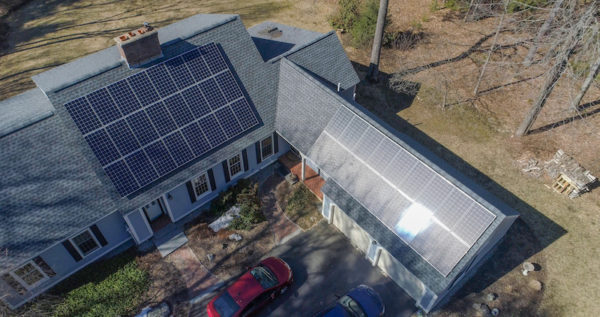
In Maine, 33 elementary- to high-school-age kids have forced the Maine Department of Environmental Protection (DEP) to consider regulating climate-damaging emissions. Photo: EcoPhotography
When The Who penned “The Kids are Alright,” they had no idea that 40 years later “the kids” would not only be alright, but leading the charge on climate change. In Maine, 33 elementary- to high-school-age kids have forced the Maine Department of Environmental Protection (DEP) to consider regulating climate-damaging emissions. These kids, joined by CLF, hundreds of registered voters, and other environmental organizations, filed a petition that requires the DEP to hold a public hearing – scheduled for May 15, 2018 – on the need for and scope of such regulations.
We need you to come to that public hearing and let the LePage administration know that its years of regressive climate policies are not acceptable. And if you can’t be there on May 15, you can send comments by June 29.
Achieving Maine’s Climate Goals
These students’ action represents an opportunity to make meaningful progress toward Maine’s long-term climate goals. Our petition calls for reducing greenhouse gas emissions by at least 8 percent per year, which correlates to reducing emissions to 75 percent below 2003 levels by the year 2035. That would satisfy Maine’s climate goal of reducing emissions to a level that isn’t dangerous to the climate.
To do this, the petition proposes a series of new regulations to reduce air pollution, including climate-warming carbon dioxide. The centerpiece of these proposals is the adoption of a “Greenhouse Gas Emissions Standards” regulation, which would establish a statewide carbon pollution limit for each year beginning in 2020. It would also limit emissions of sulfur hexafluoride, a highly potent greenhouse gas, and require some vehicle fleets, like Maine departments and agencies, to create a plan to cut their climate-damaging emissions.
Additionally, the petition calls for amendments to 10 existing regulations to incorporate greenhouse gas standards.
The Scientific Imperative for Cutting Emissions in Maine
The latest science shows that the Gulf of Maine is warming faster than 99 percent of the world’s oceans, harming marine ecosystems and wildlife, including shellfish, right whales, and herring. One recent study showed that the water entering the Gulf of Maine was nearly 11 degrees above normal temperatures. If such temperature spikes continue, it will put our lobster and crab industries at risk, and further imperil endangered North Atlantic right whales, for which the Gulf of Maine is a major feeding area.
Climate change is also causing rising seas and coastal erosion in Maine, including in Saco, where debate rages over whether and how the Army Corps of Engineers should mitigate shore damage and repair a jetty at Camp Ellis. Recent studies also indicate that climate change is a critical public health threat in Maine due to effects on drinking water, insects, and other pests, including ticks.
The Legal Obligation is Inescapable
Maine already has a legal obligation to act on climate, but under outgoing Governor LePage – an on-the-record climate-change denier – the State has failed to take any meaningful action.
Maine statutory law mandates that DEP “shall prevent, abate, and control the pollution of the air, water, and land and preserve, improve, and prevent diminution of the natural environment of the State.” The obligations under the Maine and United States Constitutions to protect everyone’s rights to life, liberty, and property extend to protecting all people from the very real impacts of climate change. And Maine has a duty under the public trust doctrine to protect Maine’s essential natural resources, including the atmosphere, oceans, beaches, and freshwaters of the state, fish, wildlife, and forests. The students’ petition is an opportunity for the State to finally make good on these obligations and to force the urgent action our climate demands.
Moving Forward on Climate Action in Maine
Kids taking the lead on climate action where adults have not is not just a Maine phenomenon – a new generation of activists across the country are filing petitions with state environmental agencies and bringing lawsuits in state and federal courts. In Oregon, for example, a number of high school students have brought a lawsuit in federal court asserting that the U.S. government has violated their constitutional rights to life, liberty and property through its actions that cause climate change. That case is scheduled to go to trial later this year. And of course, here in New England, four high school students served as plaintiffs in CLF’s lawsuit to force Massachusetts to fully enforce its landmark Global Warming Solutions Act.
As a signatory to the petition, and as part of our New England for Paris campaign, CLF has been closely involved with this effort, and will be actively engaged in the public hearing and comment process.
Please sign up here if you can attend the public hearing on May 15. And if not, please submit comments supporting the regulations here by June 29.



